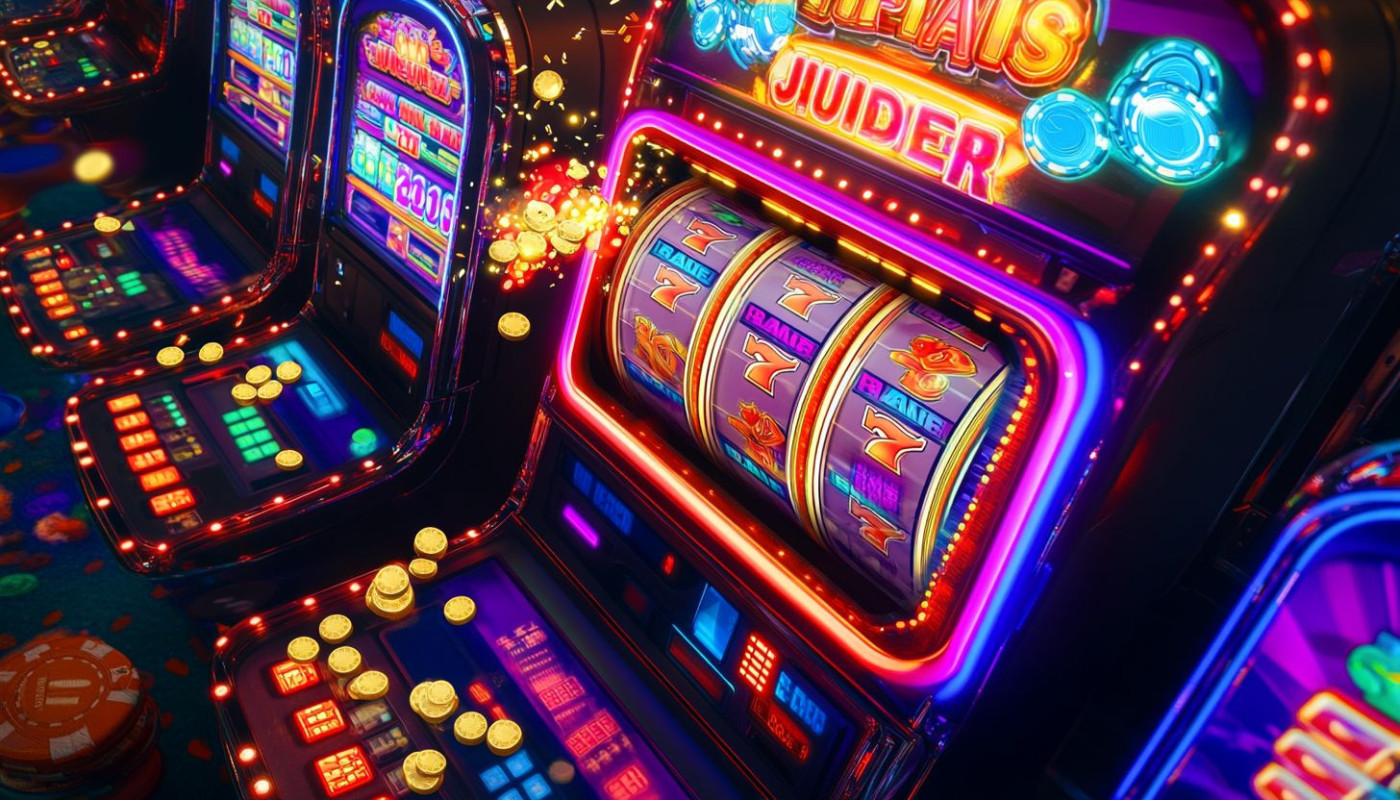Table of contents
The allure of gambling is undeniable – the rush of adrenaline, the fleeting possibility of a massive windfall, and the sheer thrill of the game. However, the house always has the edge. Many wonder if it's even possible to consistently overcome this inherent advantage. This article will delve into the art and science of professional gambling, providing you a 'behind-the-scenes' look at its facets. It's a journey into a world where statistical analysis, strategic thinking, and a touch of audacity can tilt the scales in favor of the player. A world where the house edge is not a deterrent, but a challenge to overcome. So, if you're intrigued by the dynamics of professional gambling and wish to gain insights into strategies employed by the pros, read on.
Understanding the House Edge
The house edge is a term that every professional gambler should be intimately familiar with. It's the mathematical advantage that casinos have over players, ensuring their profitability on a long-term basis. This is calculated through a concept known as the Expected Value, which takes into account the probability of each possible outcome and the potential gain or loss associated with it.
Grasping the concept of the house edge is crucial for anyone engaging in casino games. It's the invisible adversary that you are playing against every time you place a bet. The higher the house edge is, the lower your chances of winning. Thus, understanding its workings can significantly improve your overall gambling strategy and increase your chances of success.
The house edge varies from one casino game to another. For instance, blackjack and baccarat have relatively low house edges, while slot machines and keno have some of the highest. Professional gamblers often favor games with lower house edges as they offer a greater potential for profit. This does not mean, however, that games with higher house edges can’t be profitable; it simply means the odds are more in favor of the house.
It’s important to note that the house edge does not guarantee that the casino will win every bet or every game. Instead, it ensures that over a large number of games, the casino will make a profit. The house edge is a long-term mathematical expectancy, not a short-term result. So, while it’s possible to win in the short term, the longer you play, the more the odds will align with the house edge.
In essence, understanding the house edge and its implications is a vital part of professional gambling. The more knowledgeable you are, the better equipped you will be to mitigate its effects and maximize your winnings. Remember, knowledge is power, especially when it comes to the world of casino games.
The Necessity of a Strategy
When it comes to overcoming the inherent house edge in gambling, it is paramount to have a well-thought-out gambling strategy. A robust strategy not only increases your winning odds but also provides a roadmap for navigating through the complexities of the game. It is worth mentioning that, even in a game of chance, a sensible strategy can significantly amplify the probability of a successful outcome.
One must not overlook the fact that a good strategy is tailored to the intricacies and game specifics. These particulars include the rules of the game, the payout structure, the number of players amongst other things. Deep understanding of these factors allows you to devise a plan that works best for you and increases your odds of outperforming the house edge.
At the core of successful gambling strategies lies the 'Game Theory'. Game theory, in essence, is a theoretical framework for understanding how players or 'agents' make decisions within the context of a game. Incorporating game theory into your gambling strategy can provide you valuable insights into how to optimally play against the house, keeping in mind the house edge and the odds stacked against you.
In conclusion, having a well-thought-out gambling strategy, understanding the game specifics, and incorporating game theory are fundamental to overcoming the house edge. So, the next time you step into a casino, remember that the house doesn't always have to win.
Learning from Professional Gamblers
The realm of professional gambling is one that enchants many, yet mastered by few. It's a world where success stories are not merely the result of luck, but rather the outcome of meticulous strategy, a resilient mindset, and an unwavering determination to overcome the house edge. One such success story is Edward O. Thorp, known as the 'father of card counting'. He wrote a book called "Beat the Dealer", illuminating the technique of card counting and how it can significantly decrease the house edge in blackjack. His strategies have been replicated, refined, and used by gamblers worldwide.
Another noteworthy figure is Phil Ivey, hailed as one of the greatest poker players of all time. His strategy rests on a deep understanding of the game, unshakeable mental focus, and an ability to 'read' his opponents. Both Thorp and Ivey demonstrate that professional gambling is more than a game of chance. It's a game of skill, patience, and strategy.
The path to success in professional gambling, clearly, is not a simple one. It involves adopting a gambling mindset - one that is disciplined, analytical, and patient. It also involves knowing when to take risks and when to play it safe. Each of these professional gamblers serves as a testament to the power of strategic gambling. They underscore the point that, with the right approach and mindset, overcoming the house edge isn't just a dream - it can be a reality.
Managing Your Finances
When it comes to professional gambling, one cannot overemphasize the significance of effective financial management. A fundamental aspect of this is Bankroll Management, a strategy that requires you to determine and maintain a fixed amount of money (bankroll) set aside specifically for wagering. This technique is imperative for minimizing financial risks and potential losses.
Implementing a sturdy bankroll management system aids in sustaining your gambling endeavors in the long run. It allows gamblers to better gauge their winning and losing streaks, preventing them from falling into the trap of chasing losses. Considerably, another factor of significance in professional gambling is knowing when to implement your quitting strategy. Recognizing this moment is a vital part of financial management and can ultimately dictate the longevity of your gambling career.
Whether you're a financial advisor with a background in gambling or a professional gambler known for financial discipline, managing your finances well is of paramount importance in the world of professional gambling. The key is to balance risk with potential reward, and always keep a firm grasp on your financial reality.
Legal and Ethical Considerations
Navigating the world of professional gambling demands an in-depth understanding of the legal landscape, typically characterized by varying gambling laws across different jurisdictions. To maintain a successful career in gambling, a profound comprehension of these laws is paramount. Unfamiliarity may lead to hefty fines, loss of earnings, or even jail time.
Beyond the legal realm, professional gambling also presents various ethical considerations. One such challenge is the issue of problem gambling. As a professional gambler, it is vital to recognize the tell-tale signs of gambling addiction and to promote responsible gambling practices. Striking a balance between pursuing gambling as a profession and promoting Responsible Gambling is a task that demands conscious effort.
Both legal and ethical considerations in professional gambling are not just about avoiding potential pitfalls, but also about fostering a sustainable and ethical gambling environment. Ultimately, it is about creating a safe space where professional gambling can thrive, and where gamblers can participate responsibly without falling into the trap of addiction.
Similar

How To Choose A Secure Online Casino And Betting Platform?

Maximizing Wins In Virtual Casino Slots: Strategic Tips

How Modern Technology Ensures Secure Online Casino Experiences?

Exploring The Latest Trends In Sustainable Fashion For A Stylish Future

Exploring The Thrills Of A Road Crossing Casino Game With Million Dollar Prizes

The Evolution Of Arcade Games Into Online Gambling Platforms

How Digital Platforms Are Changing The Way Sports Leagues Operate

Understanding Online Casino Payment And Withdrawal Methods

Exploring The Nuances Of Traditional Japanese Crafts Online

Understanding The Rules And Gameplay Of Chicken-themed Gambling Games

Exploring The Rise Of Online Slots Popularity In Recent Years

Exploring The Benefits Of Integrated Music Platforms For Artists And Fans

Exploring Game Diversity In Online Casinos

Step-by-step Guide To Registering For Online Casino Platforms

Understanding The Rules For Playing Online Slot Games

A Comprehensive Guide To Daily Promotions In Online Gaming

Exploring The Evolution Of Online Casino Gaming In 2024

Strategies To Maximize Winnings In Chicken-themed Slot Games

The Evolution Of Bicycle Design Through History

Exploring Alternative Payment Options In Online Gambling: A Focus On Jeton

Understanding Factors That Influence Auto Insurance Rates In San Francisco

Strategies For Maximizing The Benefits Of Welcome Bonuses At Online Casinos

Probing the Dark Underworld of Illegal Gambling

Craps: The Underestimated Casino Game

Winning Big: Unforgettable Stories from the Casino

Demystifying the 'Luck' Factor in Gambling

Unconventional Strategies for Winning at Roulette

Unveiling the Mystery of Online Casino Algorithms

